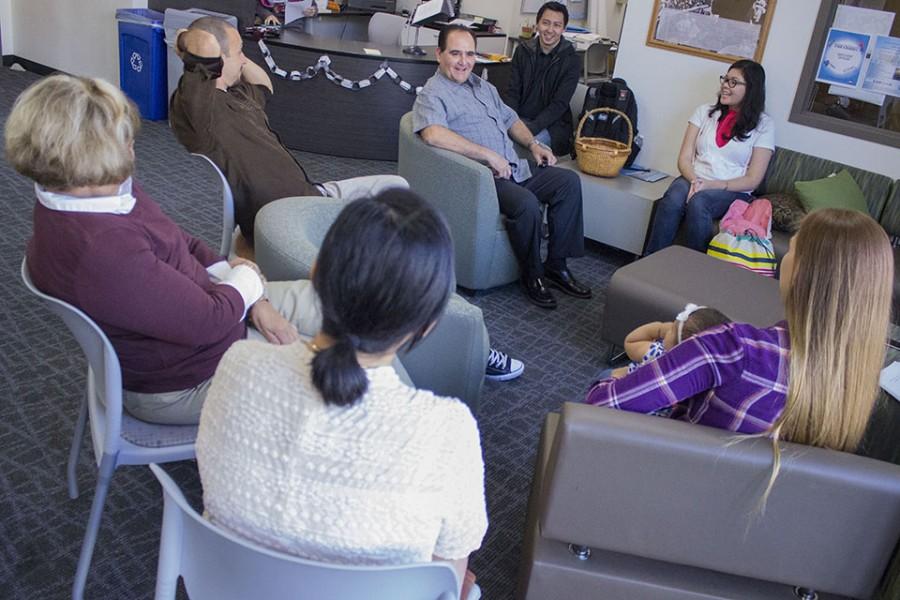Dr. Fernando Soriano discusses academic journey as a minority
Dr. Fernando Soriano describes experience as a minority in educational setting.
March 9, 2016
Dr. Fernando Soriano, Professor of Human Development, hosted a “Tukwut Talk” in which he described his journey to obtaining his advanced education as a Latino.
The event, part of “Tukwut Talks: A Series of Conversations with Faculty,” was held on Wednesday, March 2 in University Student Union 3400.
Dr. Soriano began the discussion with an important piece of motivation he offers to all his students.
“There is no magical road. Rather, there are many roads that lead to experiences…and opportunities,” he said.
Soriano was born in Guadalajara, Mexico, where he and his family stayed for just one year before moving to Los Angeles.
The first school Soriano attended was Redwood Elementary. In the third grade, he was sent back a grade level. This caused Soriano to spend his early school years trying to get back on track. Eventually, Soriano did get back on track and graduated high school with his class.
“Early childhood influences…negative or positive, they shape you”, Soriano said. He acknowledged that the desire to work hard to graduate on time shaped his work ethic.
After high school, Soriano attended UC Riverside, where he earned his bachelor’s degree in psychology. He then attended the University of Colorado where he earned his Ph.D. Shortly after, he obtained a position to continue his research at the University of Missouri, Kansas City.
Later on, Soriano obtained a visiting professorship at Stanford, which he described as “academic Disneyland.”
Through his opportunities at Stanford, Soriano got the opportunity to be a key note speaker at the 7th Biennial New Zealand Association of Adolescent Health & Development Conference.
To further pursue his career, Soriano went back to the University of Missouri where he received tenure.
Soon after, he finally received custody of his child. Unsure what to do, Soriano sought advice from a mentor.
Paraphrasing his mentor, Soriano said, “In your deathbed, when you’re about to die, what are you going to be thinking of? …What grants and publications you get? No, you’re going to be thinking about your family… [you] have to put family first.”
Soriano eventually gave up his position at University of Missouri, Kansas City and moved to California to be closer to his family.
He began working at SDSU, where he helped create the National Hispanic Science Center. He also initiated the National Latino Research Center at SDSU, funding it out of the grants he was given. Soriano ended up moving the National Latino Research Center to CSUSM after accepting a tenure track position.
Still on his academic journey, Soriano continues to teach courses at CSUSM while working on multiple projects, one of which explores the possibility of exposing at-risk youth to high-need populations to discover innovative ways to improve education for underprivileged communities.


